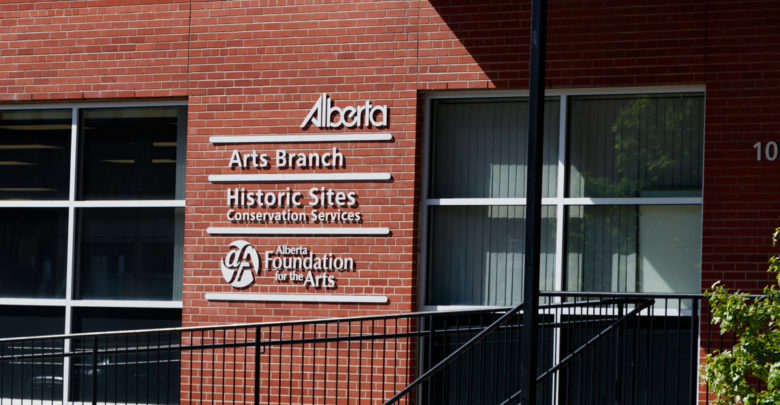Alberta Foundation for the Arts’ latest funding deferrals leave arts community frustrated
Alberta artists are left reeling after the Alberta Foundation for the Arts defers several grants, citing concerns due to the COVID-19 pandemic
 Christien Ford
Christien FordIn what has already been a tough few months for Albertan artists due to the COVID-19 pandemic, they received their latest bit of bad news. But this time it was from the Alberta Foundation for the Arts (AFA).
The AFA — which is a branch of the Ministry of Culture, Multiculturalism and Status of Women — announced in their 2020-21 spending plan that discipline specific project grants from the March 1 deadline would be withdrawn and the funding deferred to September. The reason being cited by the AFA is the inviability of a significant number of arts projects because of the COVID-19 pandemic. It was also announced that summer school project grants, Indigenous art project grants and individual funding opportunities — amongst others — have either been cancelled or suspended.
The news was met with an outcry from the Alberta arts community, with many artists viewing these changes as the latest offence in a growing list of grievances with the provincial government.
Nisha Patel, the current City of Edmonton Poet Laureate and Executive Director for the Edmonton Poetry Festival, echoed the sentiments of many artists who feel overlooked by the provincial government.
“This is a huge blow to a lot of artists in Alberta because we heard from the local level as well as the national level [that] we would be able to access emergency grants to cover our huge losses,” Patel said. “We were hoping for similar news from the province, and for months there was radio silence only for all of those project funding deadlines to be cancelled.”
This past Thursday, dozens of artists voiced their discontentment and staged a “chalk-in” protest at the Legislature, covering the concrete with chalk-written messages to the provincial government. But according to the Alberta Foundation for the Arts Executive Director Jeff Brinton, there are some details regarding the changes that may have been lost in translation.
“Unfortunately, there were some artists and individuals who believe that the funding allocation was eliminated, and that is absolutely not correct,” Brinton said. “Funding allocation is being deferred, not eliminated. All of the projects that applied in March will be encouraged to adjust with COVID in mind and the reopening and relaunching strategies that they may have in place, and resubmit.”
Brinton emphasized that the AFA’s board saw this as the most equitable approach, but for artists like Patel, the concern is about the long-term impacts of these changes even beyond the COVID-19 pandemic. Many in the arts community rely on these funds to pay for basic needs like food, clothing, shelter, and to provide stability to an already unstable revenue stream.
“Upfront it might be ‘Oh, you made $10,000 in June,’ but then you might make nothing for the next ten months,” Patel said. “Artists are used to this type of income flow, and when grants like this are cancelled that ruins the planning for sometimes several years of projects.”
There have also been concerns theses changes are just the latest signal of the provinces waning commitment to the arts and the AFA, which has seen its budget cut by almost 10 per cent over the last two years.
Ultimately, Patel stressed the importance of supporting artists directly in the midst of this pandemic.
“The best way that you can support an artist right now is that you should try to get funds or resources or even just social media support directly to the artist. Don’t go through organizations, don’t donate to big funds,” Patel said. “Artists are individual agents of change, and they will have the biggest impact if you get resources directly into their hands.”




